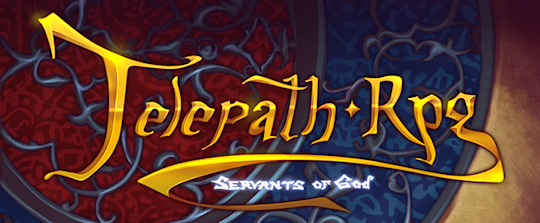Happy Valentine’s Day, everyone! Today, in honor of the Day of Love, we are going to learn how to speak the most romantic language of all time: Lissit! (Or “lizardtongue,” as it is sometimes called by the humans of Cera Bella.)
Let’s get started with some basic pronouns:
| si | see | I / me |
| su | soo | You |
| sus | soose | We / us |
| sulesh | soo – lesh’ | All of us |
| sek | sehk | He / him / it |
| sekat | seh – kat’ | She / her |
| sekesh | seh’ – kesh | Them / they |
Next, we move on to the conjugations of “to be”:
| zetura | zeh’ – tyoo – rah | To be |
| si zet | see zeht | I am |
| su zet | soo zeht | You are |
| sus zetesh | zeh’ – tehsh | We are |
| sek azet | ah – zeht’ | He is / it is |
| sekat azet | ah – zeht’ | She is |
| sekesh azetesh | ah’ – zeh – tehsh | They are |
Here is how you say hello and goodbye:
| ferat duur | feh – raht’ dure | Goodbye (lit. “remain ferocious”) |
| su si-ari | soo see ah’ – ree’ | Hello (lit. “you please me”) |
The conjugations of “to have”:
| ahsura | ah’ – soo – rah | To have |
| si ahs | ahs | I have |
| su ahs | ahs | You have |
| sus ahsesh | ah – sesh’ | We have |
| sek ahsas | ahs – ahs’ | He has |
| sekat ahsas | ahs – ahs’ | She has |
| sekesh ahsasesh | ahs’ – ah – sesh | They have |
And a few basic articles, conjunctions, prepositions, and other connectors that we’ll use when constructing sentences:
| ze | zee | The |
| so | soh | A |
| iss | ihs | And |
| rosk | rahsk | But, however |
| sor | sore | Or |
| asit | ah – ssit’ | For |
| fes | fess | Of, about, concerning |
| isik | iss’ – ihk | If |
| risik | riss’ – ihk | Then |
The lissit have their own names for the various species of Cera Bella:
| lissit | lih’-siht | A lizardman of any gender |
| lissat | lih – saht’ | A female lizardman |
| ge’filesh | geh’ – fill – ehsh’ | A shadowling or shadowlings |
| thirim duuriss | thih’ – rim doo’ – riss | A spriggat |
| hesh | hehsh | A human or humans |
| silith duuriss | sih’ – lith doo’ – riss | A golem |
And now, a list of common words!
| aduur | ah’ – dure | Someplace (n.) |
| aduura | ah’ – dure – ah | To go (v.); to leave (v.) |
| adyl | ah’ – dill | Still, unmoving, passive (adj.) |
| ahbas | ah’ – bahss | Bored (adj.) |
| ahzerik | ah’ – zehr – ihk | Angry (adj.) |
| alesh | ah’ – lehsh | All (adj.) |
| ambuur | ahm – boohr’ | Golden (adj.), gold coin (n.) |
| ambuura | ahm’ – byoo – rah | To gild (v.); to beautify, as with gold (v.); to press coins (v.) |
| ames | ah’ – mayss | Likewise (adj.); in return, in exchange (adj.) |
| arima | ah’ – ri – mah | To please; to make happy (v.) |
| arisit | ah’ – ri – sit | Lover (n., male) |
| arisat | ah’ – ri – sat | Lover (n., female) |
| barud | bah – roohd’ | Large, two-handed mace favored by lizardman warriors (n.) |
| barudura | bah – roohd’ – yoo – rah | To beat or bludgeon (v.) |
| blud | bloohd’ | Blood (n.) |
| bludura | bloohd’ – yoo – rah | To bleed (v.) |
| damat | dah’ – maht | Promise (n.) |
| damura | dah’ – myoo – rah | To be obligated (v.) |
| duur | doohr | Long-lived, enduring (adj.) |
| duura | dooh’ – rah | To live (v.) |
| duuriss | dooh’ – riss | Alive (adj.) |
| fangiss | fan’ – giss | Tooth, fang (n.) |
| ferat | feh – raht’ | Fierce, ferocious, aggressive (adj.); hot (adj.) |
| fil | fihl | A bite or morsel of food (n.) |
| filara | fih – lah – rah’ | To prepare food; to cook (v.) |
| filesh | fih – lehsh’ | Meat (n.) |
| firin | fih – reen’ | Zealous, passionate (adj.) |
| geduur | geh – dure’ | Corpse (n.) |
| geduura | geh’ – dooh – rah | To kill (v.) |
| geduuriss | geh’ – dooh – riss | Dead (adj.) |
| gehsura | geh’ – soo – rah | To lack; to miss (v.) |
| gelaan | geh – lahn’ | Small (adj.) |
| getor | geh – tore’ | Weak (adj.) |
| ho | hoh | Day (n.) |
| hss | hiss | In line for succession (also used as an honorific in place of “resh”) (adj.) |
| hesh | hehsh | Hair or fur (n.) |
| heshiss | hehsh’ – ihs | Hairy; covered in fur (adj.) |
| hsun | soon | Protector (n.) |
| idgas | id – gahss’ | An expression of indifference; it translates roughly to “maybe it matters to the skeletons” |
| ka | kah | Of the lizardmen, in the sense of all lizardmen as a united people (adj.) |
| kalaw | kahl – ow’ | Claw, hand (n.) |
| karok | kah – rahk’ | Hunger (n.) |
| karokiss | kah – rahk’ – iss | Hungry (adj.) |
| ko | koh | Afraid (adj.); cold (adj.) |
| kri | kree | Night (n.); darkness (n.) |
| kta | ktah | Fast (adj.); quickly (adv.) |
| laan | lahn | Big (adj.) |
| omisigah | oh – mih – sih – gah’ | a curse word that translates more or less literally to “my ancestors have cursed me” |
| predat | preh – daht’ | Hunter (n.) |
| predura | preh – dyoo’ – rah | To hunt, to stalk (v.) |
| ra | rah | War, battle, conflict (n.) |
| ra’kalaw | rah’ – kahl – ow | Lit. “war hand”; an act of war. (n.) |
| ra’pet | rah’ – peht | Warrior, fighter (n.) |
| ra’pis | rah’ – peese | Shield (n.) |
| rasura | rah’ – syoo – rah | To fight (v.) |
| resh | rehsh | “He who is named” — used to indicate that a proper name is to follow, like “mister” (n.) |
| reshat | reh – shaht’ | “She who is named” — used to indicate that a proper name is to follow, like “miss” (n.) |
| sal | sahl | Cunning, clever (adj.) |
| scarl | scahrl | Red, scarlet (n., adj.), bloody (adj.) |
| scarlura | scahrl’ – yoo – rah | To wound; to cause to bleed (v.) |
| sera | seh – rah’ | Blade (n.) |
| serat | seh – raht’ | Sharp (adj.) |
| seratura | seh – raht’ – yoo – rah | To sharpen (v.) |
| silesh | sih’ – lehsh | Many (n., adj.) |
| silit | sih’ – liht | A crevice (n.); hidden (adj.) |
| silith | sih’ – lihth | A boulder (n.); a stone edifice (n.) |
| silithis | sih – lihth’ – iss | Patient (adj.) |
| so | soh | One (n., adj.) |
| tal | tahl | High, towering (adj.) |
| t’ayil | tai – yeel’ | Tail (n.) |
| thirim | thih’ – rihm | Temperature (n.) |
| thuur | thure | Danger (n.) |
| tor | tore | Strong (adj.) |
| zaris | zah’ – rihs | Clan (n.) |
| zerik | zeh’ – rihk | Anger (n.) |
| zeruka | zeh’ – ryoo – kah | To provoke (v.) |
| zisura | zih’ – syoo – rah | To come (v.); to approach (v.) |
You might have started to notice certain patterns with these–there are prefixes and suffixes that the lissit use to denote meaning in their words:
| -at | aht | (Feminizing suffix) |
| -esh / -lesh | ehsh / lehsh | (Pluralizing suffix; -lesh if word ends in a vowel) |
| ge’- | geh | (Negating prefix, like the English “un-“) |
Lissit grammar is mostly a lot like English, though there are a couple of big exceptions.
1) If a verb takes a pronoun as a direct object, the direct object should be attached to the front of the verb with a hyphen. (For example: “to fight me” would be spoken as “si-rasura”; “to approach him” would be “sek-zisura.”)
2) Connect pronouns and nouns with hyphens and the word “dama” in between to denote possession. (For example: “si-dama-zaris” would mean “my clan”; “sek-dama-t’ayil” would mean “his tail”; and so on.)
There! Got all that? Now, for the part we’ve all been waiting for: Valentines in lissit!
- Si zet karokiss asit su! (“I am hungry for you!”)
- Su si-ari, arisat! (“You please me, lover!”)
- Si zet getor asit su. (“I am weak for you.”)
- Zet si-dama! (“Be mine!”)
- Su zeruk si-dama-blud! (“You provoke my blood!”)
- Si zet silithis, rosk si su-gehsur. (“I am patient, but I miss you.”)
- Si predur thuur asit su! (“I hunt danger for you!”)
Awwwww. See? Isn’t that sweet? They may look like giant, upright, scaly, anthropomorphic komodo dragons, but the lissit have feelings too!
The lissit will be appearing in Telepath Tactics. Click here to learn more! (Also, you should totally feel free to come upvote the game on Steam Greenlight.)






